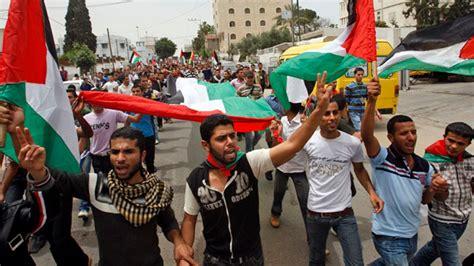
As Palestinian factions seek reconciliation in Cairo, Islamic Jihad to boycott talks
Ziyad al-Nakhala, Secretary-General of the Palestinian Islamic Jihad terror group, announced on Sunday that the movement will boycott a meeting of Palestinian factions scheduled to take place in Cairo on July 30.
Al-Nakhala said in a statement that the boycott is motivated by the arrest of a number of PIJ members by the Palestinian Authority. “We will not go to the meeting as long as our mujahideen brothers are detained in the prisons of the Palestinian Authority,” he said.
The meeting of the general secretaries was announced on July 3 by PA President Mahmoud Abbas, in response to the latest Israeli operation in Jenin, and it is scheduled to include 14 Palestinian factions, most notably Fatah, Hamas, Islamic Jihad, the Popular and Democratic Fronts for the Liberation of Palestine, and the Palestinian People’s Party, according to a report in al-Quds news.
For its part, Hamas responded positively to Abbas’s invitation. During a public meeting held in Gaza on Sunday, Khalil al-Hayya, a prominent member of the Hamas political bureau, said that the group intends to take part in the Cairo talks and will do “everything it can for the success of the meeting.” The talks will explore the possibility of forming a new Palestinian National Council through elections, or to find an agreement for the formation of a transitional national council and a joint government with Fatah.
The stated goal of the upcoming round of Cairo talks between Palestinian factions, like numerous previous failed iterations, is to find reconciliation and end the internal rifts that have plagued the Palestinian leadership since Hamas took over the Gaza Strip in 2007. There are however doubts as to the efficacy of the talks, and concerns that they will only deepen the disagreements and divisions among different Palestinian groups and exacerbate popular discontent and loss of confidence.
Hamas confirmed its participation after the release of one of its leaders in the northern West Bank last Thursday. Mustafa Abu Arra (63) was detained last Thursday in his home village of Tubas, between Jenin and Nablus, on charges of slandering PA officials, and was released on Sunday following calls from Hamas activists and a deterioration of his health condition, according to Palestinian news website Palinfo. Hamas had qualified Abu Arra’s arrest as “political.”
Relations have been tense between the Fatah-run Palestinian Authority on one side and Hamas and the Palestinian Islamic Jihad on the other in the weeks following the IDF Jenin operation. The PA arrested a number of members of both terror groups, which have been eroding Ramallah’s authority in the northern West Bank for the past two years.
On Tuesday, PA security forces carried out a raid against the PIJ in a village near Jenin, arresting five. In response, the terror group organized a mass demonstration in the Jenin refugee camp against the PA, accusing it of doing “the work of the Israeli occupation.”
Tensions also seem to be escalating between the PIJ and Hamas in the Gaza Strip, after Hamas-controlled police swarmed a PIJ mosque in Rafah last week and arrested a prominent religious figure affiliated with the rival terror group.
The boycott by the PIJ signals a change of course for the group, after its Secretary General Ziyad Al-Nakhala declared on July 11 that it intended to participate, even though it already had reservations following the first waves of arrests by the PA.
Mahmoud Abbas’ crackdown on opponents and his perceived failure to protect Jenin residents from the latest Israeli army invasion have prompted various Palestinian commentators to renew calls for the leader to “exit the stage.” In an editorial, Palestinian author and journalist Ramzy Baroud argued that even “ordinary Palestinians” today feel “emboldened by a new generation of [armed] resistance which has succeeded in reclaiming a degree of Palestinian unity, amid factional politics and PA corruption.”
If the PA continues its arrests against members of rival Palestinian factions, the author claims, “civil war in the West Bank is a real possibility.”
Source » timesofisrael.com





